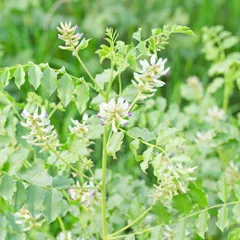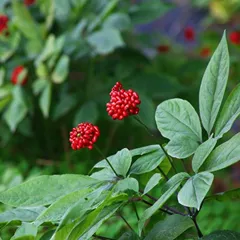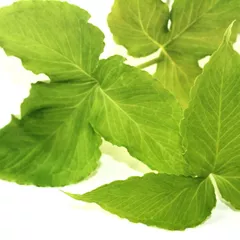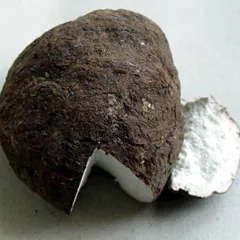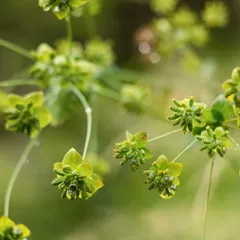Chronic gastritis according to Chinese Medicine
The information provided here is not a replacement for a doctor. You shouldn't use it for the purpose of self-diagnosing or self-medicating but rather so you can have a more informed discussion with a professional TCM practitioner.
Chronic gastritis factsheet
Possible causes and remedies:
Symptoms: Weak voice Loose stools Poor appetite and two other symptoms
Recommended formula: Si Jun Zi Tang
Phlegm-Dampness in the Middle-Burner
Symptoms: Nausea Vomiting Focal distention and two other symptoms
Recommended formula: Liu Jun Zi Tang
In Chinese Medicine, chronic gastritis can be associated with twelve so-called "patterns of disharmony". Chinese Medicine sees the body as a system, not a sum of isolated parts. A "pattern" is when the system's harmony is disrupted. It is not equivalent to the Western concept of "disease", as a matter of fact here chronic gastritis can be caused by twelve different patterns.
To understand whether someone's chronic gastritis might be caused by a given pattern, one needs to look for signs and symptoms associated with the pattern beyond what one might typically experience from chronic gastritis alone. For instance when chronic gastritis is caused by the pattern Spleen Qi Deficiency, patients also experience symptoms such as pale complexion, weak voice, poor appetite and loose stools. Similarly, patients with Spleen Qi Deficiency typically exhibit soggy (Ru) or weak (Ruo) pulses as well as a pale tongue.
We've listed below a description of the twelve patterns associated with chronic gastritis so that you can start to get an understanding of the various possibilities according to Chinese Medicine.
Once identified, patterns are often treated using herbal formulas. Drinking herbal infusions is the most common remedy in Chinese Medicine, together with acupuncture. Here we detail below twenty seven formulas that can help treat the various patterns associated with chronic gastritis, depending on which pattern fits your profile.
The twelve "patterns of disharmony" associated with chronic gastritis
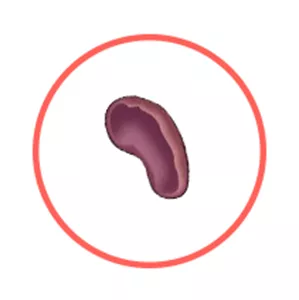
The Spleen is a so-called "Zang" Organ. Learn more about the Spleen in Chinese Medicine
Spleen Qi Deficiency
Pulse type(s): Soggy (Ru), Weak (Ruo)
Tongue color: Pale
Recommended herbal formula: Si Jun Zi Tang
Symptoms: Weak voice Loose stools Poor appetite Pale complexion Weakness in the limbs
Chronic gastritis might be due to Spleen Qi Deficiency if the condition is paired with typical pattern symptoms such as pale complexion, weak voice, poor appetite and loose stools. Similarly, patients with Spleen Qi Deficiency typically exhibit soggy (Ru) or weak (Ruo) pulses as well as a pale tongue.
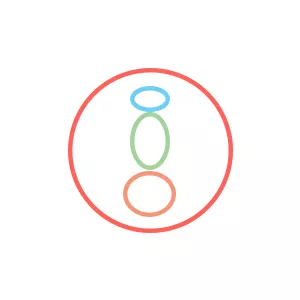
The Triple Burner is a so-called "Fu" Organ. Learn more about the Triple Burner in Chinese Medicine
Phlegm-Dampness in the Middle-Burner
Recommended herbal formula: Liu Jun Zi Tang
Symptoms: Nausea Vomiting Focal distention Coughing of copious thin and white sputum Stifling sensation in the chest and epigastrium
Chronic gastritis might be due to Phlegm-Dampness in the Middle-Burner if the condition is paired with typical pattern symptoms such as nausea, vomiting, stifling sensation in the chest and epigastrium and focal distention.

The Spleen is a so-called "Zang" Organ. Learn more about the Spleen in Chinese Medicine
Blood Deficiency with disharmony of Liver and Spleen
Pulse type(s): Empty (Xu), Wiry (Xian)
Tongue color: Pale
Recommended herbal formula: Xiao Yao San
Symptoms: Anemia Vertigo Dizziness Headaches Dry mouth Chest pain Dry throat Leukorrhea Poor appetite Chest fullness Breast distention Irregular menstruation Alternating fever and chills
Chronic gastritis might be due to Blood Deficiency with disharmony of Liver and Spleen if the condition is paired with typical pattern symptoms such as chest fullness, chest pain, anemia and dizziness. Similarly, patients with Blood Deficiency with disharmony of Liver and Spleen typically exhibit empty (Xu) or wiry (Xian) pulses as well as a pale tongue.
Read more about Blood Deficiency with disharmony of Liver and Spleen here
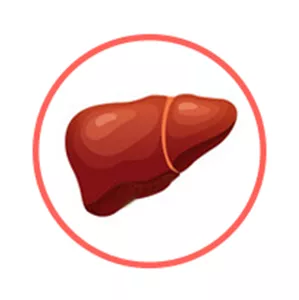
The Liver is a so-called "Zang" Organ. Learn more about the Liver in Chinese Medicine
Liver Qi Stagnation
Pulse type(s): Wiry (Xian)
Recommended herbal formula: Chai Hu Shu Gan San
Symptoms: Belching Flank pain Irritability Suppressed emotions Feelings of frustration Alternating fever and chills Abdominal distention and fullness Stifling sensation in the chest causing one to have deep sighs
Chronic gastritis might be due to Liver Qi Stagnation if the condition is paired with typical pattern symptoms such as flank pain, stifling sensation in the chest causing one to have deep sighs, suppressed emotions and feelings of frustration. Similarly, patients with Liver Qi Stagnation typically exhibit wiry (Xian) pulses.
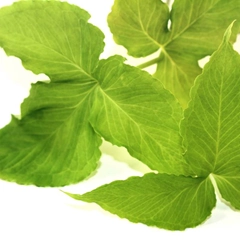
Crow-Dipper Rhizomes (Ban Xia) is the key herb for Er Chen Tang, a formula used for Damp-Cold Phlegm
Damp-Cold Phlegm
Pulse type(s): Slippery (Hua)
Tongue coating: Thick white coating
Recommended herbal formula: Er Chen Tang
Symptoms: Nausea Vomiting Dizziness Palpitations Focal distention Coughing with copious white sputum Stifling sensation in the chest and epigastrium
Chronic gastritis might be due to Damp-Cold Phlegm if the condition is paired with typical pattern symptoms such as nausea, vomiting, stifling sensation in the chest and epigastrium and palpitations. Similarly, patients with Damp-Cold Phlegm typically exhibit slippery (Hua) pulses as well as a tongue with thick white coating.
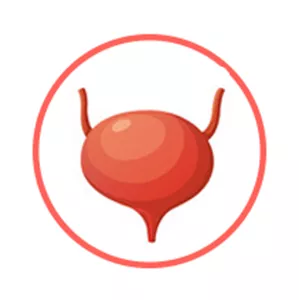
The Bladder is a so-called "Fu" Organ. Learn more about the Bladder in Chinese Medicine
Qi Stagnation in Gallbladder and Stomach with Phlegm Heat
Pulse type(s): Slippery (Hua), Wiry (Xian)
Tongue coating: Yellow coating
Recommended herbal formula: Wen Dan Tang
Symptoms: Anxiety Palpitations Slight thirst Nausea or vomiting Dizziness or vertigo Bitter taste in the mouth Indeterminate gnawing hunger Focal distention of the chest Coughing of copious thick yellow sputum Dream disturbed sleep with strange or unusual dreams
Chronic gastritis might be due to Qi Stagnation in Gallbladder and Stomach with Phlegm Heat if the condition is paired with typical pattern symptoms such as nausea or vomiting, dizziness or vertigo, dream disturbed sleep with strange or unusual dreams and palpitations. Similarly, patients with Qi Stagnation in Gallbladder and Stomach with Phlegm Heat typically exhibit slippery (Hua) or wiry (Xian) pulses as well as a tongue with yellow coating.
Read more about Qi Stagnation in Gallbladder and Stomach with Phlegm Heat here
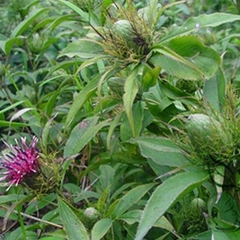
Atractylodes Rhizomes (Bai Zhu) is the key herb for Yue Ju Wan, a formula used for Qi Stagnation
Qi Stagnation
Pulse type(s): Wiry (Xian)
Tongue coating: Thin white coating
Tongue color: Normal (light red)
Recommended herbal formula: Yue Ju Wan
Symptoms: Belching Vomiting Acid reflux Indigestion Poor appetite Fixed pain in the hypochondria Mild coughing with copious sputum Stifling sensation in the chest and abdomen
Chronic gastritis might be due to Qi Stagnation if the condition is paired with typical pattern symptoms such as stifling sensation in the chest and abdomen, fixed pain in the hypochondria, belching and vomiting. Similarly, patients with Qi Stagnation typically exhibit wiry (Xian) pulses as well as a normal (light red) tongue with thin white coating.

The Liver is a so-called "Zang" Organ. Learn more about the Liver in Chinese Medicine
Lung Qi Deficiency and Liver Qi Stagnation
Pulse type(s): Empty (Xu), Tight (Jin)
Tongue coating: Thin white coating
Tongue color: Normal (light red), Pale
Recommended herbal formula: Xiao Chai Hu Tang
Symptoms: Coughing Dizziness Headaches Depression Moving pain Listlessness Hypochondrium fullness
Chronic gastritis might be due to Lung Qi Deficiency and Liver Qi Stagnation if the condition is paired with typical pattern symptoms such as coughing, hypochondrium fullness, dizziness and headaches. Similarly, patients with Lung Qi Deficiency and Liver Qi Stagnation typically exhibit empty (Xu) or tight (Jin) pulses as well as a normal (light red), pale tongue with thin white coating.
Read more about Lung Qi Deficiency and Liver Qi Stagnation here
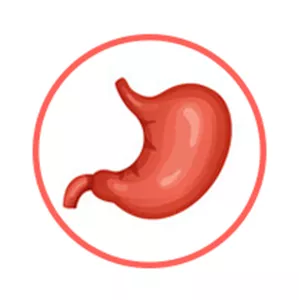
The Stomach is a so-called "Fu" Organ. Learn more about the Stomach in Chinese Medicine
Stomach Qi Deficiency with Phelgm
Pulse type(s): Empty (Xu), Wiry (Xian)
Tongue coating: Thick white coating
Recommended herbal formula: Xuan Fu Dai Zhe Tang
Symptoms: Hiccuping Regurgitation Nausea or vomiting Unremitting belching Hard epigastric focal distention
Chronic gastritis might be due to Stomach Qi Deficiency with Phelgm if the condition is paired with typical pattern symptoms such as unremitting belching, hiccuping, regurgitation and nausea or vomiting. Similarly, patients with Stomach Qi Deficiency with Phelgm typically exhibit empty (Xu) or wiry (Xian) pulses as well as a tongue with thick white coating.

The Liver is a so-called "Zang" Organ. Learn more about the Liver in Chinese Medicine
Liver Qi Stagnation that transforms into Heat
Pulse type(s): Rapid (Shu), Wiry (Xian)
Tongue coating: Yellow coating
Tongue color: Red
Recommended herbal formula: Jin Ling Zi San
Symptoms: Hernial pain Irritability Bitter taste in the mouth Intermittent epigastric pain Painful periods that get worse with hot food or drinks
Chronic gastritis might be due to Liver Qi Stagnation that transforms into Heat if the condition is paired with typical pattern symptoms such as intermittent epigastric pain, hernial pain, painful periods that get worse with hot food or drinks and irritability. Similarly, patients with Liver Qi Stagnation that transforms into Heat typically exhibit rapid (Shu) or wiry (Xian) pulses as well as a red tongue with yellow coating.
Read more about Liver Qi Stagnation that transforms into Heat here
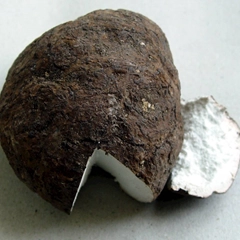
Poria-Cocos Mushrooms (Fu Ling) is the key herb for Ling Gui Zhu Gan Tang, a formula used for Phlegm-Fluids in the hypochondrium
Phlegm-Fluids in the hypochondrium
Pulse type(s): Slippery (Hua), Soggy (Ru), Wiry (Xian)
Tongue coating: Thick white coating
Tongue color: Pale
Tongue shape: Swollen
Recommended herbal formula: Ling Gui Zhu Gan Tang
Symptoms: Palpitations Dizziness or vertigo
Chronic gastritis might be due to Phlegm-Fluids in the hypochondrium if the condition is paired with typical pattern symptoms such as palpitations and dizziness or vertigo. Similarly, patients with Phlegm-Fluids in the hypochondrium typically exhibit slippery (Hua), soggy (Ru) or wiry (Xian) pulses as well as a pale tongue with thick white coating.

The Stomach is a so-called "Fu" Organ. Learn more about the Stomach in Chinese Medicine
Stomach Yin Deficiency
Tongue coating: Partial absence of coating
Recommended herbal formula: Yi Wei Tang
The twenty seven herbal formulas that might help with chronic gastritis
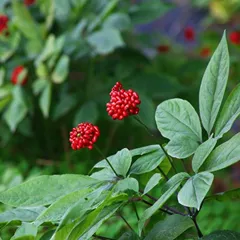
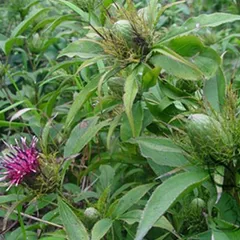
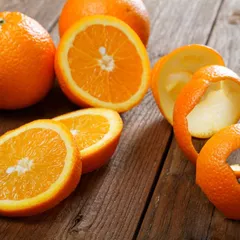
The top herbs in Liu Jun Zi Tang are Ginseng (Ren Shen), Atractylodes Rhizomes (Bai Zhu) and Tangerine Peel (Chen Pi)
Liu Jun Zi Tang
Source date: 1107
Number of ingredients: 6 herbs
Key actions: Tonifies Qi. Strengthens the Spleen and Stomach. Clears Phlegm and mucus. Promotes appetite.
Why might Liu Jun Zi Tang help with chronic gastritis?
Because it is a formula often recommended to help with the patterns Spleen Qi Deficiency and Phlegm-Dampness in the Middle-Burner which are sometimes associated with chronic gastritis. If any of these patterns look like something you might suffer from, this formula might help (although please seek confirmation with a professional practitioner beforehand).


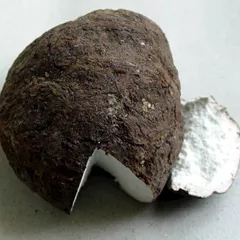
The top herbs in Si Jun Zi Tang are Ginseng (Ren Shen), Atractylodes Rhizomes (Bai Zhu) and Poria-Cocos Mushrooms (Fu Ling)
Si Jun Zi Tang
Source date: 1107 AD
Number of ingredients: 4 herbs
Key actions: Tonifies Qi. Strengthens the Spleen and Stomach.
Why might Si Jun Zi Tang help with chronic gastritis?
Because it is a formula often recommended to help treat Spleen Qi Deficiency, a pattern sometimes associated with chronic gastritis. If it looks like you might suffer from Spleen Qi Deficiency, this formula might help (although please seek confirmation with a professional practitioner beforehand).
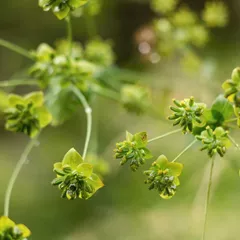
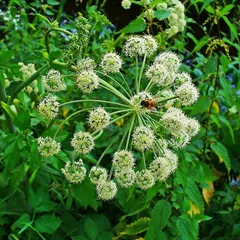
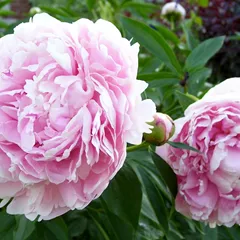
The top herbs in Xiao Yao San are Bupleurum Roots (Chai Hu), Dong Quai (Dang Gui) and White Peony Roots (Bai Shao)
Xiao Yao San
Source date: 1107 AD
Number of ingredients: 6 herbs
Key actions: Harmonizes the function of Liver and Spleen. Relieves Liver Qi stagnation. Nourishes the Blood.
Why might Xiao Yao San help with chronic gastritis?
Because it is a formula often recommended to help treat Blood Deficiency with disharmony of Liver and Spleen, a pattern sometimes associated with chronic gastritis. If it looks like you might suffer from Blood Deficiency with disharmony of Liver and Spleen, this formula might help (although please seek confirmation with a professional practitioner beforehand).

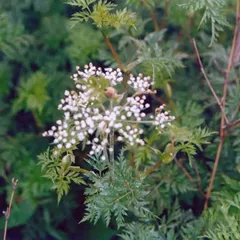
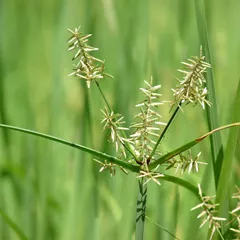
The top herbs in Chai Hu Shu Gan San are Bupleurum Roots (Chai Hu), Szechuan Lovage Roots (Chuan Xiong) and Coco-Grass Rhizomes (Xiang Fu)
Chai Hu Shu Gan San
Source date: 1602
Number of ingredients: 7 herbs
Key actions: Disperses Stagnant Liver Qi and Blood. Alleviates pain. Harmonizes Blood.
Why might Chai Hu Shu Gan San help with chronic gastritis?
Because it is a formula often recommended to help treat Liver Qi Stagnation, a pattern sometimes associated with chronic gastritis. If it looks like you might suffer from Liver Qi Stagnation, this formula might help (although please seek confirmation with a professional practitioner beforehand).
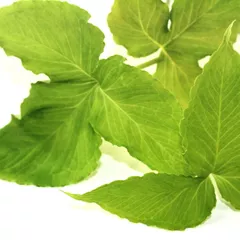


The top herbs in Er Chen Tang are Crow-Dipper Rhizomes (Ban Xia), Tangerine Peel (Chen Pi) and Poria-Cocos Mushrooms (Fu Ling)
Er Chen Tang
Source date: 1148 AD
Number of ingredients: 5 herbs
Key actions: Dries Damp and dispels Phlegm. Regulates Qi and harmonizes the Middle Burner (Stomach and Spleen).
Why might Er Chen Tang help with chronic gastritis?
Because it is a formula often recommended to help treat Damp-Cold Phlegm, a pattern sometimes associated with chronic gastritis. If it looks like you might suffer from Damp-Cold Phlegm, this formula might help (although please seek confirmation with a professional practitioner beforehand).

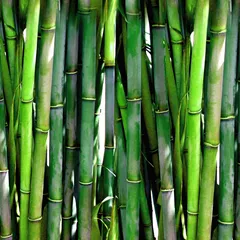
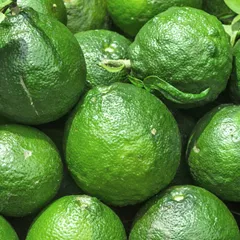
The top herbs in Wen Dan Tang are Crow-Dipper Rhizomes (Ban Xia), Bamboo Shavings (Zhu Ru) and Immature Bitter Oranges (Zhi Shi)
Wen Dan Tang
Source date: 1174 AD
Number of ingredients: 8 herbs
Key actions: Clears Phlegm. Clears Gallbladder. Regulates Qi. Harmonizes the Stomach.
Why might Wen Dan Tang help with chronic gastritis?
Because it is a formula often recommended to help treat Qi Stagnation in Gallbladder and Stomach with Phlegm Heat, a pattern sometimes associated with chronic gastritis. If it looks like you might suffer from Qi Stagnation in Gallbladder and Stomach with Phlegm Heat, this formula might help (although please seek confirmation with a professional practitioner beforehand).



The top herbs in Yue Ju Wan are Atractylodes Rhizomes (Bai Zhu), Szechuan Lovage Roots (Chuan Xiong) and Coco-Grass Rhizomes (Xiang Fu)
Yue Ju Wan
Source date: 1481 AD
Number of ingredients: 5 herbs
Key actions: Promotes the movement of Qi. Releases all types of Stagnation (Qi, Blood, Phlegm, Fire, Food and Dampness).
Why might Yue Ju Wan help with chronic gastritis?
Because it is a formula often recommended to help treat Qi Stagnation, a pattern sometimes associated with chronic gastritis. If it looks like you might suffer from Qi Stagnation, this formula might help (although please seek confirmation with a professional practitioner beforehand).

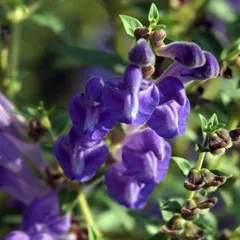

The top herbs in Xiao Chai Hu Tang are Bupleurum Roots (Chai Hu), Baikal Skullcap Roots (Huang Qin) and Crow-Dipper Rhizomes (Ban Xia)
Xiao Chai Hu Tang
Source date: 220 AD
Number of ingredients: 7 herbs
Key actions: Treats the Lesser Yang Channels (Gallbladder and Triple Warmer). Regulates the Liver and Spleen functions. Addresses combined Yin-Yang symptoms of External and Internal, Excess and Deficiency, and Hot and Cold.
Why might Xiao Chai Hu Tang help with chronic gastritis?
Because it is a formula often recommended to help treat Lung Qi Deficiency and Liver Qi Stagnation, a pattern sometimes associated with chronic gastritis. If it looks like you might suffer from Lung Qi Deficiency and Liver Qi Stagnation, this formula might help (although please seek confirmation with a professional practitioner beforehand).
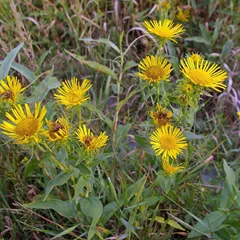
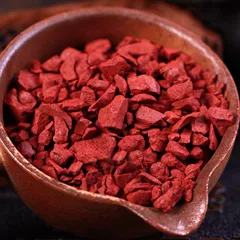

The top herbs in Xuan Fu Dai Zhe Tang are Inula Flowers (Xuan Fu Hua), Hematite (Dai Zhe Shi) and Crow-Dipper Rhizomes (Ban Xia)
Xuan Fu Dai Zhe Tang
Source date: 220 AD
Number of ingredients: 7 herbs
Key actions: Regulates the downward flow of Stomach Qi. Expectorant, treats hiccups.
Why might Xuan Fu Dai Zhe Tang help with chronic gastritis?
Because it is a formula often recommended to help treat Stomach Qi Deficiency with Phelgm, a pattern sometimes associated with chronic gastritis. If it looks like you might suffer from Stomach Qi Deficiency with Phelgm, this formula might help (although please seek confirmation with a professional practitioner beforehand).
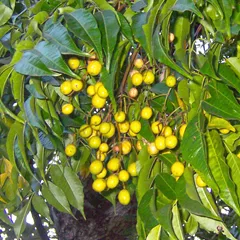
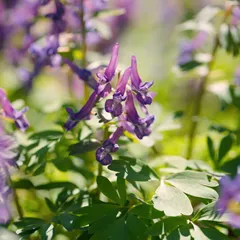

The top herbs in Jin Ling Zi San are Sichuan Chinaberries (Chuan Lian Zi) and Corydalis Tubers (Yan Hu Suo)
Jin Ling Zi San
Source date: 992 AD
Number of ingredients: 2 herbs
Key actions: Moves Liver Blood and Liver Qi. Drains Liver Heat or Fire. Stops pain.
Why might Jin Ling Zi San help with chronic gastritis?
Because it is a formula often recommended to help treat Liver Qi Stagnation that transforms into Heat, a pattern sometimes associated with chronic gastritis. If it looks like you might suffer from Liver Qi Stagnation that transforms into Heat, this formula might help (although please seek confirmation with a professional practitioner beforehand).

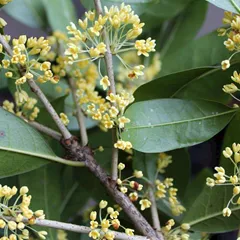

The top herbs in Ling Gui Zhu Gan Tang are Poria-Cocos Mushrooms (Fu Ling), Cinnamon Twigs (Gui Zhi) and Atractylodes Rhizomes (Bai Zhu)
Ling Gui Zhu Gan Tang
Source date: 220 AD
Number of ingredients: 4 herbs
Key actions: Warms and transforms Phlegm-Fluids. Strengthens the Spleen. Resolves Dampness.
Why might Ling Gui Zhu Gan Tang help with chronic gastritis?
Because it is a formula often recommended to help treat Phlegm-Fluids in the hypochondrium, a pattern sometimes associated with chronic gastritis. If it looks like you might suffer from Phlegm-Fluids in the hypochondrium, this formula might help (although please seek confirmation with a professional practitioner beforehand).
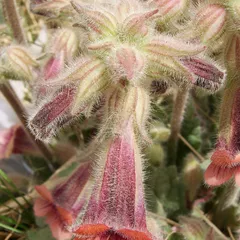
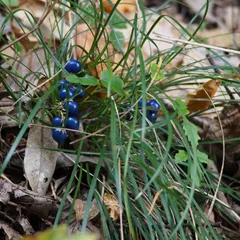
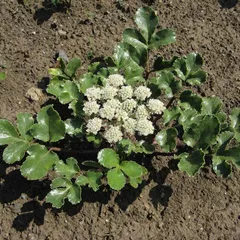
The top herbs in Yi Wei Tang are Unprepared Rehmannia (Di Huang), Dwarf Lilyturf Roots (Mai Dong) and Glehnia Roots (Bei Sha Shen)
Yi Wei Tang
Source date: 1798 AD
Number of ingredients: 5 herbs
Key actions: Strengthen the Stomach. Creates Body Fluids.
Why might Yi Wei Tang help with chronic gastritis?
Because it is a formula often recommended to help treat Stomach Yin Deficiency, a pattern sometimes associated with chronic gastritis. If it looks like you might suffer from Stomach Yin Deficiency, this formula might help (although please seek confirmation with a professional practitioner beforehand).

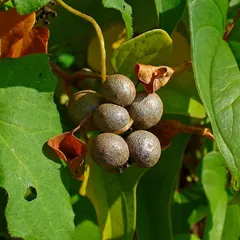

The top herbs in Wan Dai Tang are Atractylodes Rhizomes (Bai Zhu), Yam (Shan Yao) and Ginseng (Ren Shen)
Wan Dai Tang
Source date: 1826 AD
Number of ingredients: 10 herbs
Key actions: Tonifies the Middle Burner. Removes Dampness. Stops vaginal discharge. Strengthens the Spleen.
Why might Wan Dai Tang help with chronic gastritis?
Because it is a formula often recommended to help treat , a pattern sometimes associated with chronic gastritis. If it looks like you might suffer from , this formula might help (although please seek confirmation with a professional practitioner beforehand).
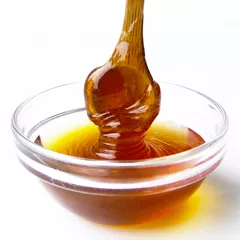
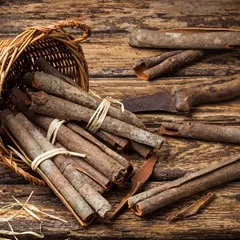

The top herbs in Xiao Jian Zhong Tang are Maltose (Yi Tang), Cinnamon Bark (Rou Gui) and White Peony Roots (Bai Shao)
Xiao Jian Zhong Tang
Source date: 220 AD
Number of ingredients: 6 herbs
Key actions: Warms and tonifies the Middle Burner (Spleen and Stomach). Tonifies Qi. Relieves spasmodic pain.
Why might Xiao Jian Zhong Tang help with chronic gastritis?
Because it is a formula often recommended to help treat , a pattern sometimes associated with chronic gastritis. If it looks like you might suffer from , this formula might help (although please seek confirmation with a professional practitioner beforehand).
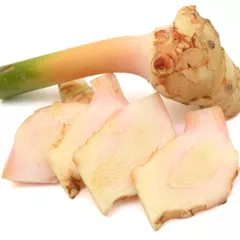


The top herbs in Liang Fu Wan are Lesser Galangal Rhizomes (Gao Liang jiang) and Coco-Grass Rhizomes (Xiang Fu)
Liang Fu Wan
Source date: 1842 AD
Number of ingredients: 2 herbs
Key actions: Warms the Middle Burner. Dispels Cold. Promotes the movement of Qi. Alleviates Pain.
Why might Liang Fu Wan help with chronic gastritis?
Because it is a formula often recommended to help treat , a pattern sometimes associated with chronic gastritis. If it looks like you might suffer from , this formula might help (although please seek confirmation with a professional practitioner beforehand).
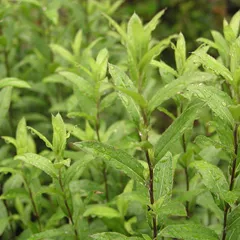
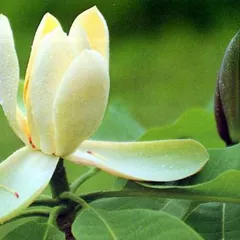

The top herbs in Ping Wei San are Black Atractylodes Rhizomes (Cang Zhu), Houpu Magnolia Bark (Hou Pu) and Tangerine Peel (Chen Pi)
Ping Wei San
Source date: 1051 AD
Number of ingredients: 4 herbs
Key actions: Dries Dampness. Improves the Spleen's transportive function. Promotes the movement of Qi. Harmonizes the Stomach.
Why might Ping Wei San help with chronic gastritis?
Because it is a formula often recommended to help treat , a pattern sometimes associated with chronic gastritis. If it looks like you might suffer from , this formula might help (although please seek confirmation with a professional practitioner beforehand).


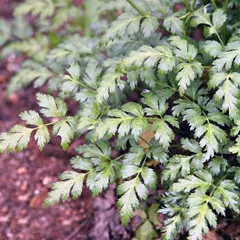
The top herbs in Huang Lian Wen Dan Tang are Crow-Dipper Rhizomes (Ban Xia), Bamboo Shavings (Zhu Ru) and Goldthread Rhizomes (Huang Lian)
Huang Lian Wen Dan Tang
Source date: 1852 AD
Number of ingredients: 7 herbs
Key actions: Clears Hot Phlegm. Clears Gallbladder Heat. Regulates Qi. Harmonizes the Stomach.
Why might Huang Lian Wen Dan Tang help with chronic gastritis?
Because it is a formula often recommended to help treat , a pattern sometimes associated with chronic gastritis. If it looks like you might suffer from , this formula might help (although please seek confirmation with a professional practitioner beforehand).



The top herbs in Shen Ling Bai Zhu San are Ginseng (Ren Shen), Atractylodes Rhizomes (Bai Zhu) and Poria-Cocos Mushrooms (Fu Ling)
Shen Ling Bai Zhu San
Source date: 1107 AD
Number of ingredients: 10 herbs
Key actions: Augments the Qi. Strengthens the Spleen. Leaches out Dampness. Stops diarrhea.
Why might Shen Ling Bai Zhu San help with chronic gastritis?
Because it is a formula often recommended to help treat , a pattern sometimes associated with chronic gastritis. If it looks like you might suffer from , this formula might help (although please seek confirmation with a professional practitioner beforehand).
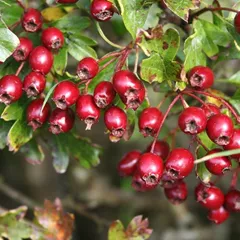
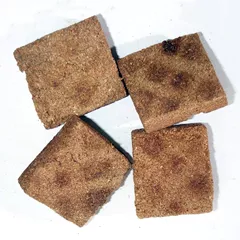
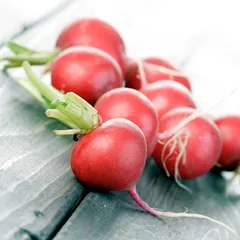
The top herbs in Bao He Wan are Hawthorn Berries (Shan Zha), Medicated Leaven (Shen Qu) and Radish Seeds (Lai Fu Zi)
Bao He Wan
Source date: 1481 AD
Number of ingredients: 7 herbs
Key actions: Reduces food stagnation. Harmonizes the Stomach.
Why might Bao He Wan help with chronic gastritis?
Because it is a formula often recommended to help treat , a pattern sometimes associated with chronic gastritis. If it looks like you might suffer from , this formula might help (although please seek confirmation with a professional practitioner beforehand).
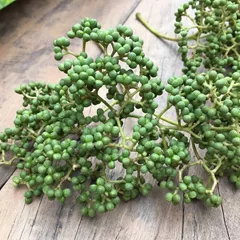
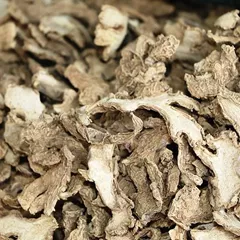

The top herbs in Da Jian Zhong Tang are Sichuan Pepper (Hua Jiao), Dried Ginger (Gan Jiang) and Ginseng (Ren Shen)
Da Jian Zhong Tang
Source date: 220 AD
Number of ingredients: 4 herbs
Key actions: Warms and tonifies Middle Burner Deficiency. Directs rebellious Qi downward. Relieves pain.
Why might Da Jian Zhong Tang help with chronic gastritis?
Because it is a formula often recommended to help treat , a pattern sometimes associated with chronic gastritis. If it looks like you might suffer from , this formula might help (although please seek confirmation with a professional practitioner beforehand).

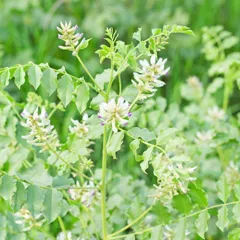

The top herbs in Gan Cao Gan Jiang Tang are Dried Ginger (Gan Jiang) and Liquorice (Gan Cao)
Gan Cao Gan Jiang Tang
Source date: 220 AD
Number of ingredients: 2 herbs
Key actions: Warms the Lungs. Strengthens the Stomach.
Why might Gan Cao Gan Jiang Tang help with chronic gastritis?
Because it is a formula often recommended to help treat , a pattern sometimes associated with chronic gastritis. If it looks like you might suffer from , this formula might help (although please seek confirmation with a professional practitioner beforehand).
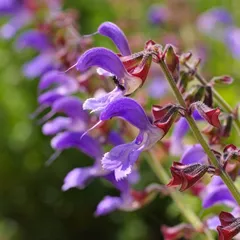
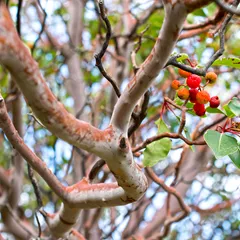
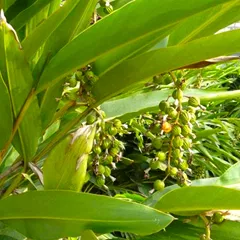
The top herbs in Dan Shen Yin are Red Sage Roots (Dan Shen), Sandalwood (Tan Xiang) and Amomum Fruits (Sha Ren)
Dan Shen Yin
Source date: 1801 AD
Number of ingredients: 3 herbs
Key actions: Invigorates the Blood and removes Blood Stagnation . Promote Qi movement . Relieves pain .
Why might Dan Shen Yin help with chronic gastritis?
Because it is a formula often recommended to help treat , a pattern sometimes associated with chronic gastritis. If it looks like you might suffer from , this formula might help (although please seek confirmation with a professional practitioner beforehand).
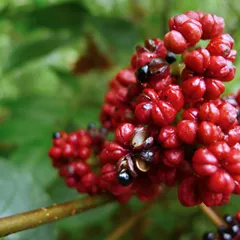
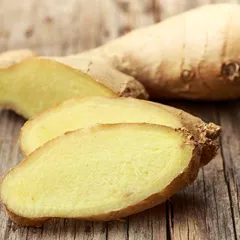

The top herbs in Wu Zhu Yu Tang are Evodia Fruits (Wu Zhu Yu), Fresh Ginger (Sheng Jiang) and Ginseng (Ren Shen)
Wu Zhu Yu Tang
Source date: 220 AD
Number of ingredients: 4 herbs
Key actions: Warms and tonifies the Liver and Stomach. Directs Rebellious Qi downward. Stops vomiting.
Why might Wu Zhu Yu Tang help with chronic gastritis?
Because it is a formula often recommended to help treat , a pattern sometimes associated with chronic gastritis. If it looks like you might suffer from , this formula might help (although please seek confirmation with a professional practitioner beforehand).



The top herbs in Gui Zhi Ren Shen Tang are Cinnamon Twigs (Gui Zhi), Ginseng (Ren Shen) and Dried Ginger (Gan Jiang)
Gui Zhi Ren Shen Tang
Source date: 220 AD
Number of ingredients: 5 herbs
Key actions: Releases the Exterior. Warms the Interior. Augments the Qi. Eliminates focal distention .
Why might Gui Zhi Ren Shen Tang help with chronic gastritis?
Because it is a formula often recommended to help treat , a pattern sometimes associated with chronic gastritis. If it looks like you might suffer from , this formula might help (although please seek confirmation with a professional practitioner beforehand).

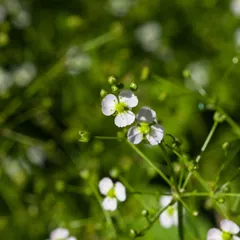

The top herbs in Dang Gui Shao Yao San are White Peony Roots (Bai Shao), Water Plantain (Ze Xie) and Szechuan Lovage Roots (Chuan Xiong)
Dang Gui Shao Yao San
Source date: 220 AD
Number of ingredients: 7 herbs
Key actions: Nourishes the Liver Blood. Spreads the Liver Qi. Strengthens the Spleen. Resolves Dampness.
Why might Dang Gui Shao Yao San help with chronic gastritis?
Because it is a formula often recommended to help treat , a pattern sometimes associated with chronic gastritis. If it looks like you might suffer from , this formula might help (although please seek confirmation with a professional practitioner beforehand).


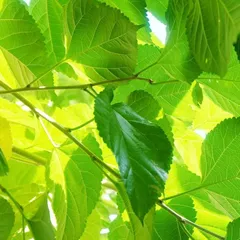
The top herbs in Sha Shen Mai Men Dong Tang are Glehnia Roots (Bei Sha Shen), Dwarf Lilyturf Roots (Mai Dong) and Mulberry Leaves (Sang Ye)
Sha Shen Mai Men Dong Tang
Source date: 1798 AD
Number of ingredients: 7 herbs
Key actions: Clears and nourishes the Lungs and Stomach. Generates Body Fluids and moistens Dryness.
Why might Sha Shen Mai Men Dong Tang help with chronic gastritis?
Because it is a formula often recommended to help treat , a pattern sometimes associated with chronic gastritis. If it looks like you might suffer from , this formula might help (although please seek confirmation with a professional practitioner beforehand).
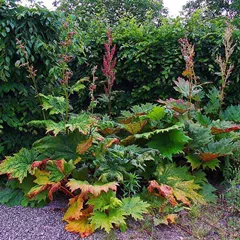


The top herbs in Xiao Cheng Qi Tang are Rhubarb (Da Huang), Houpu Magnolia Bark (Hou Pu) and Immature Bitter Oranges (Zhi Shi)
Xiao Cheng Qi Tang
Source date: 220 AD
Number of ingredients: 3 herbs
Key actions: Moderately purges Heat accumulation. Circulates Qi in the Middle .
Why might Xiao Cheng Qi Tang help with chronic gastritis?
Because it is a formula often recommended to help treat , a pattern sometimes associated with chronic gastritis. If it looks like you might suffer from , this formula might help (although please seek confirmation with a professional practitioner beforehand).
Symptoms related to chronic gastritis
Poor appetite Vomiting Dizziness Palpitations Nausea Stifling sensation in the chest and epigastrium Focal distention Headaches Alternating fever and chills Irritability

